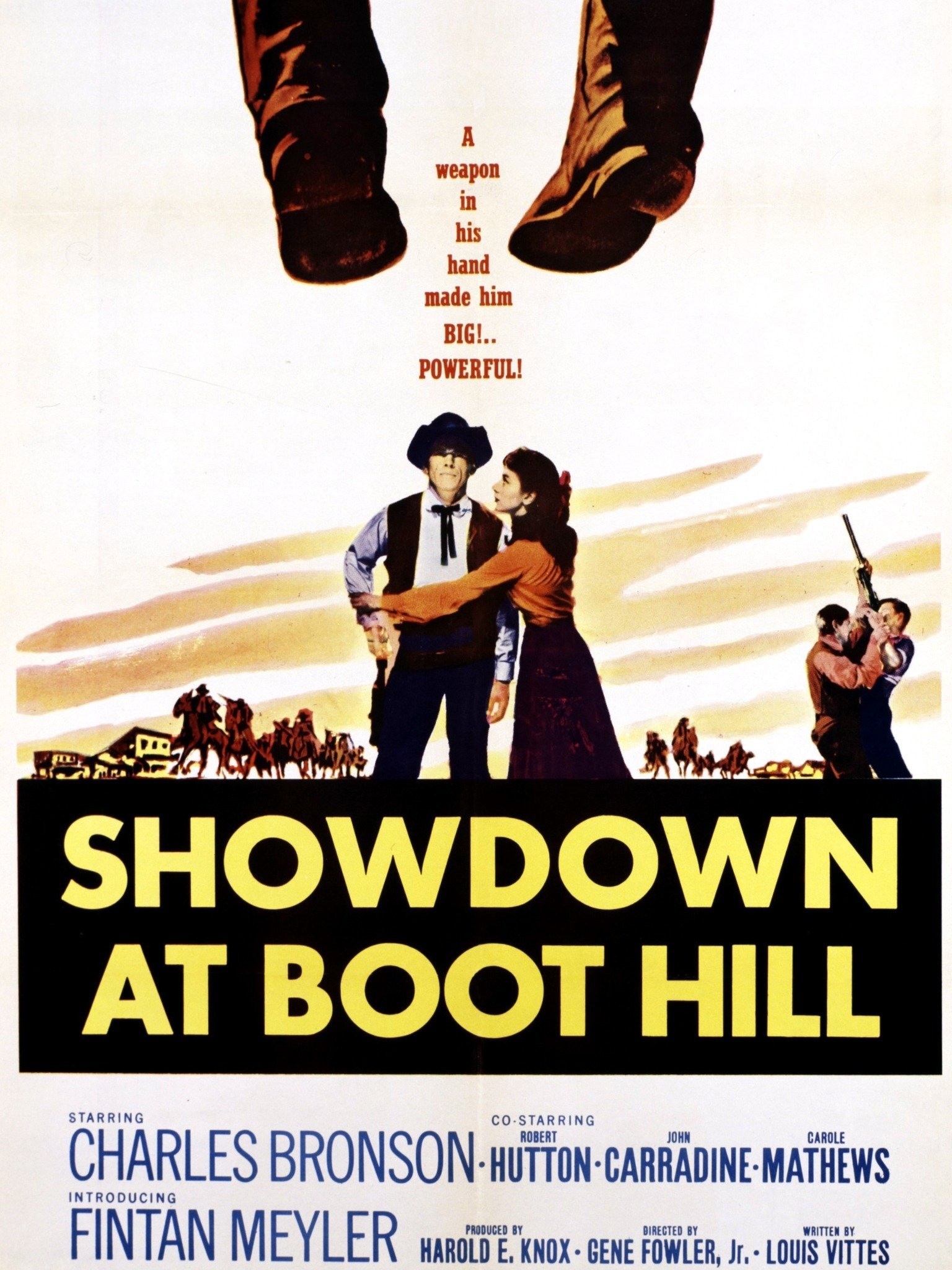The bounty hunter ranks as one of many stock characters in both American westerns and European horse operas. Universally reviled in virtually every American western until Sergio Leone's "For A Few Dollars More" (1965), this stock character emerged as a protagonist rather than an antagonist during the Spaghetti western craze. In most Hollywood westerns, the bounty hunter was almost always unsavory, untrustworthy, greedy and more often peripheral. This murdering scum had no qualms about shooting his quarry in the back rather than bringing him in alive. One of the early 'sympathy for the bounty hunter' westerns was director Gene Fowler Jr.'s "Showdown at Boot Hill," a Regalscope release. Lensed in glorious black & white by John M. Nickolaus Jr., this low-budget oater looks simply spectacular with its 2.35.1 widescreen imagery. Chiefly known for his prolific television work, Nickolaus Jr. served as a lenser on some vintage 1960's westerns, horror chillers and sci-fi sagas. Among them Roger Corman's "The Terror" (1960), "Young Guns of Texas" (1962), "The Day Mars Invaded Earth" (1962), "House of the Damned" (1963), "Guns of Diablo" (1964), and "Four Fast Guns" (1960). Sure, these low-budget, drive-in movies amounted to nothing memorable, but "Showdown" stands out from the pack. Fowler, Jr., and Nickolaus Jr., have taken Louis Vittes' intriguing premise and enhanced it with suspenseful pacing and attractive visuals. There are no bland compositions in the entire picture. The dusty little hamlet of a town that "Showdown at Boot Hill" plays out in has an authentic touch to it. Of course, since this is a Regal Pictures release, a subsidiary of 20th Century Fox, the town now appeared previous Fox horse operas and later in Edward Dmytryk's star-studded "Warlock" (1959) with Henry Fonda, Richard Widmark, and Anthony Quinn. Actually, the Anthony Mann western "The Tin Star" presented a sympathetic portrait of a bounty hunter who

"Showdown" boasts Charles Bronson's solid, steely-eyed performance as a tough guy in his first starring role. Long typecast as a villain, Bronson now played a sympathetic protagonist, Marshal Luke Welsh, who had tracked down a desperado, Con Maynor (Thomas Browne Henry of "The Domino Kid"), to the sleepy hamlet. He confronts Maynor in the dining room of the hotel and kills him in self-defense. Unfortunately, for Luke, nobody wants to identify Maynor, so our hero cannot collect his $200 bounty money. Virtually everybody in town loathes Luke vigorously except Sally Crane (Fintan Meyler of "Zero Hour!"), a plain-Jane type who waits tables in the hotel dining room. Unbelievably, Welsh winds up taking Ms. Crane to a town dance, but townspeople shun them and drive them out. During one scene in Crane's hotel room, we learn Luke has always felt self-conscious about his short stature. Similarly, Sally is ashamed of herself, because she was the illegitimate child of a dance hall tramp, Jill Crane (Carole Mathews of "Swamp Women"), who warbles songs for her customers in her saloon. Poor Sally struggles to live under the stigma of disgrace in the town's eyes. Before long, Luke and Sally are attracted to each other after a brash first encounter where Welsh barges into her hotel room. Of course, by this time, Welsh has outdrawn every foe in a gunfight and has established a reputation. He displayed his lightning swift draw as one gunman, Sloane (Robert Hutton of "The Slime People"), could later attest from first-hand knowledge. Welsh blew Sloane's gun out of his hand in a duel. Moments before this shooting, Welsh had gunned down his quarry in a saloon shootout. Scenarist Louis Vittes' screenplay contains psychological elements, tragedy, violence, and romance. The ending is rather offbeat, and what happens to our hero is a welcome change, though hardcore western afficionados may feel cheated by the outcome.
